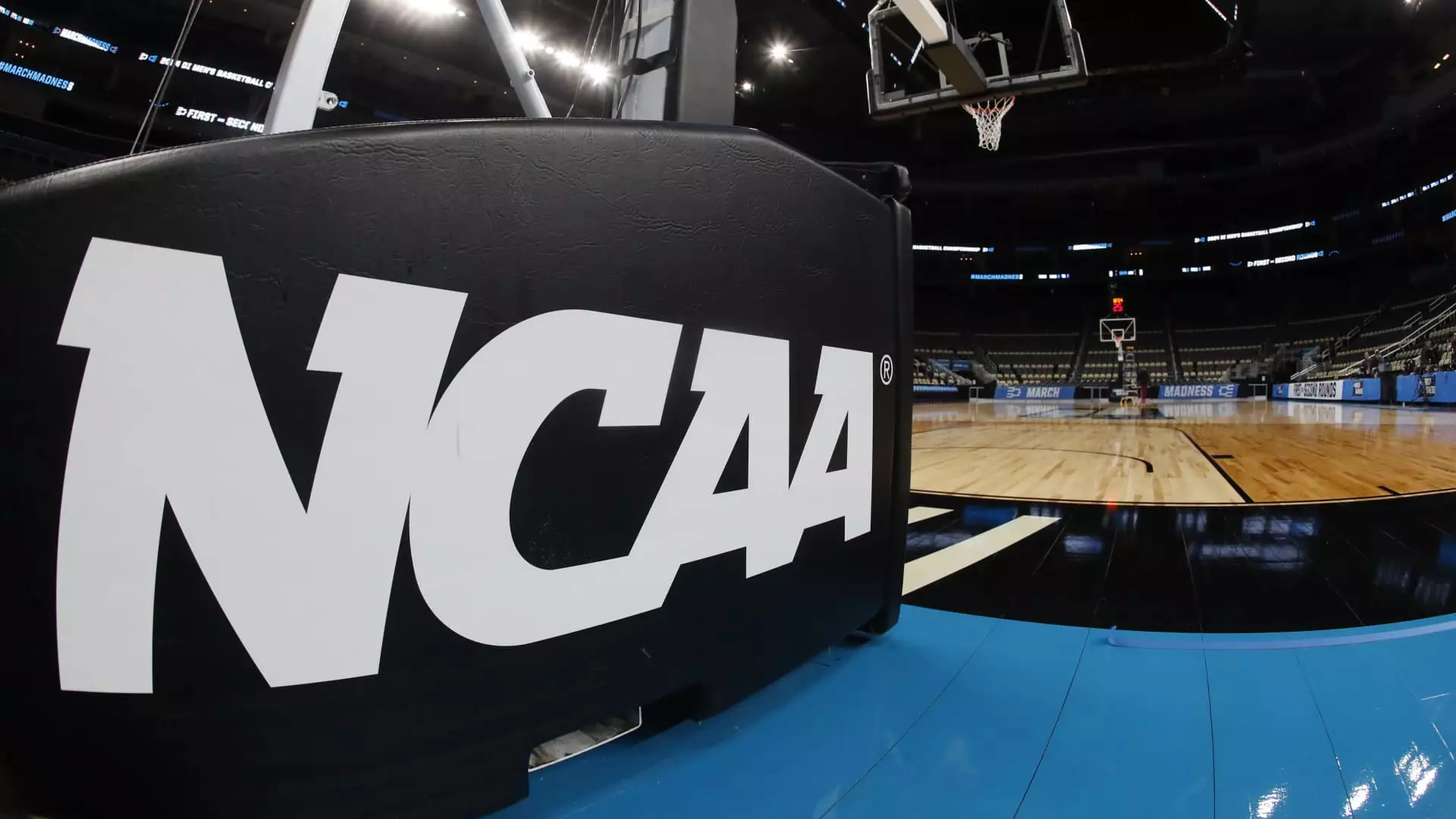The National Collegiate Athletic Association (NCAA) has made a significant alteration to its transgender athlete regulations, now explicitly banning trans women from competing in women’s sports. This modification follows closely on the heels of a presidential executive order by Donald Trump, which threatened federal funding cuts to institutions allowing these athletes to participate. Such changes have incited a whirlwind of debate surrounding gender identity in sports and the broader implications for transgender rights.
Under the newly instituted framework, individuals assigned male at birth can still train and benefit from resources available to women’s teams, such as healthcare and facilities. However, engaging in competitive events is explicitly forbidden. In contrast, all athletes, regardless of their gender or sex designation, can participate on men’s teams. Yet, certain restrictions come into play, particularly concerning athletes on testosterone therapy—these individuals must seek medical exemptions to be eligible. Importantly, similar limitations apply to students assigned female at birth if they are undergoing testosterone treatment.
This policy marks a radical departure from the NCAA’s previous adherence to Olympic guidelines prioritizing individual sports authorities in determining trans athlete eligibility. In January 2022, the organization had championed a more inclusive approach, allowing trans athletes to compete in accordance with their gender identity. The recent reversal raises substantial questions about the NCAA’s commitment to equity and inclusivity in athletics—a contrast that has drawn ire from advocacy groups and LGBTQ+ activists.
In a statement, NCAA President Charlie Baker articulated a desire for clarity and consistency across varying state laws when it comes to eligibility standards, arguing that conflicting regulations undermine student-athletes. Following Trump’s directive, Baker suggested that it would create a uniform framework significantly simplifying the compliance landscape for colleges and universities. Critics, however, argue that this unified standard equates to a regressive step, stripping away the nuanced understanding of gender diversity and its implications in sports.
Trump’s order builds on previous actions that aim to define gender strictly as binary—effectively displacing non-binary identities from the national conversation. The rhetoric surrounding such policies often overlooks the complexities associated with gender identity, reducing it to mere biological terms. For example, Chris Mosier, a prominent transgender triathlete, has vocalized concerns regarding these policies, denouncing their reductionist view of gender and the potential harm they pose to not just trans women but also intersex individuals and women undergoing hormone therapies for legitimate health reasons.
As the NCAA implements these changes, it is essential to consider the wider societal ramifications. The new policy could propagate exclusionary practices that contradict the spirit of athletic competition based on fairness and respect for all participants. With the foundational principles of sports hinging on inclusivity and integrity, the NCAA may need to revisit this regressive path and reevaluate its commitment to embracing all athletes, irrespective of their gender identities. Embracing diversity within sports not only enriches the athletic experience but can also pave the way for a more equitable society.

